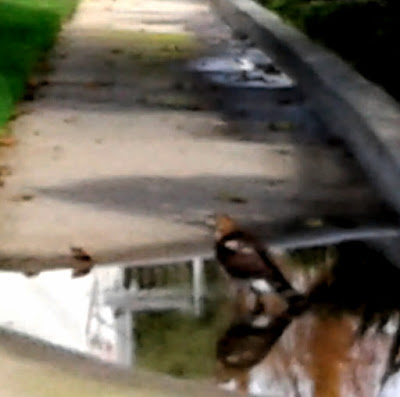In the evening, just before eight o'clock, I took a walk alone, by a road which goes up the hill, back of our hotel, and which I supposed might be the road to the town of Windermere. But it went up higher and higher, and for the mile or two that it led me along, winding up, I saw no traces of a town; but at last it turned into a valley between two high ridges, leading quite away from the lake, within view of which the town of Windermere is situated. It was a very lonely road, though as smooth, hard, and well kept as any thoroughfare in the suburbs of a city; hardly a dwelling on either side, except one, half barn, half farm-house, and one gentleman's gateway, near the beginning of the road, and another more than a mile above. At, two or three points there were stone barns, which are here built with great solidity. At one place there was a painted board, announcing that a field of five acres was to be sold, and referring those desirous of purchasing to a solicitor in London. T



